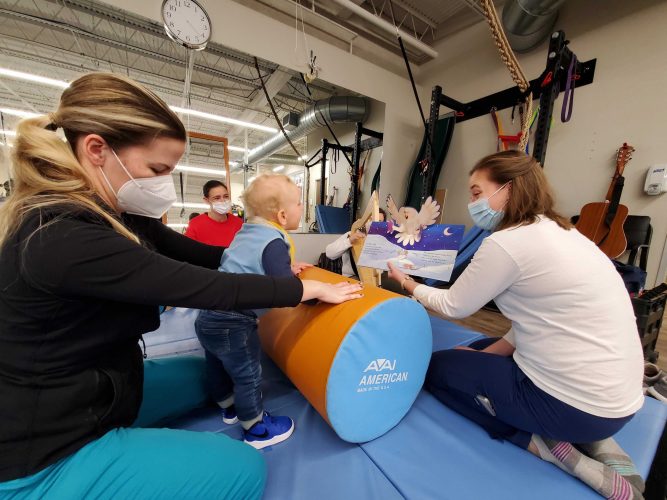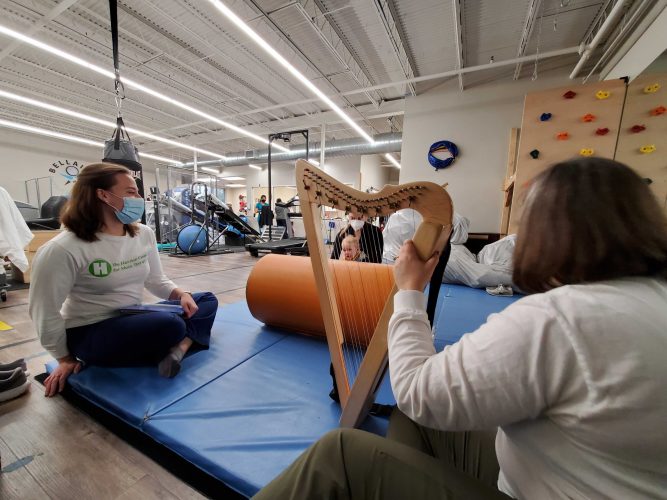

Can Music Therapy Help?
Therapy SPOT – Bellaire is now welcoming board-certified music therapists from The Harrison Center for Music Therapy to its rehabilitation team. Modern advances in neuroscience have highlighted music as being processed in both brain hemispheres, making it a unique treatment tool for neurorehabilitation. Research has established that music, as a structured, time-ordered stimulus with a multitude of sensory opportunities, can have a profound effect on physical, cognitive, and socioemotional processes. Two, peer-reviewed music therapy journals are currently published in the United States: The Journal of Music Therapy and Music Therapy Perspectives.
Music therapy is an allied healthcare profession that uses evidence-based interventions to address individualized, nonmusical goals for individuals across the lifespan. Music therapy interventions purposefully combine elements of rhythm, meter, melody, harmony, and timbre to address a range of needs in cognitive, motor, speech-language, social, and behavioral/emotional domains. Music therapists work in a wide variety of healthcare and educational settings, from schools and daycare treatment programs to nursing homes, outpatient clinics, hospitals, addiction recovery facilities, and rehabilitation centers. Treatment strategies may incorporate creating, singing, moving to, and/or listening to music.
As part of a network of related services, music therapists consistently work with a team of interdisciplinary professionals to craft specialized plans for effectively targeting patient goals. Music therapists may support mental health by helping develop coping skills for anger, depression, or anxiety through songwriting, instrument play, or lyric analysis. Music therapists may support physical and motor needs by using specific rhythms and melodies to provide timing and intensity cues for fine and gross motor movements needed for activities of daily life. Entraining body movements to auditory stimuli may lengthen exercise duration, increase range of motion, and improve movement fluidity and organization. Music therapists may support speech-language needs by singing patient preferred lyrics which contain opportunities for specific consonant sound production, employing specific rhythms for addressing oral-motor coordination, and utilizing melodic cues and phrase durations to target respiratory strength and control. Patients do not have to have specific music ability or experience to benefit from music therapy services.
References
American Music Therapy Association. (2005). What is music therapy. Retrieved from
https://www.musictherapy.org/about/musictherapy/
Thaut, M.H., & Hoemburg, V. (Eds.). (2014). Handbook of neurologic music therapy. New York, New York: Oxford University Press.

